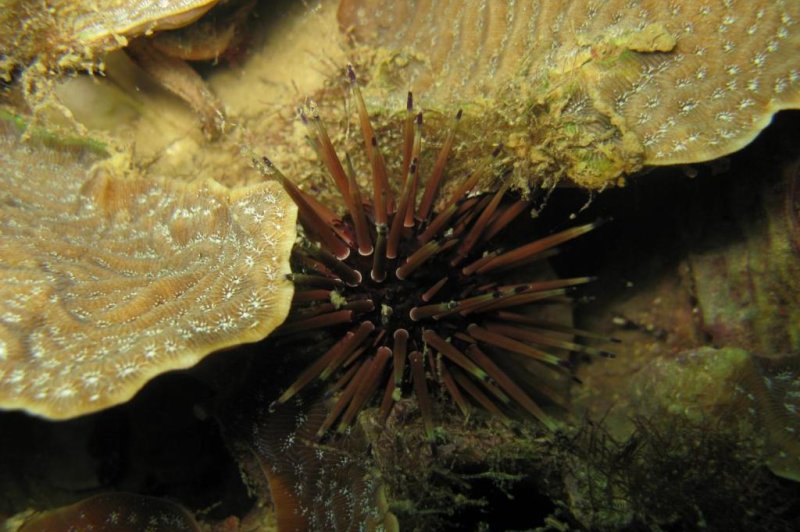Scientists were surprised to find smaller species -- like the urchin species Echinometra viridis -- account for a significant amount of grazing activity on degraded coral reefs in the Caribbean. Photo by J. Ruvalcaba/STRI
PANAMA CITY, Panama, Jan. 5 (UPI) -- Every ecosystem is a balancing act, some more delicate than others. Small changes can yield large and unexpected consequences. New research suggests that for coral reefs in the Caribbean, much depends on tiny grazers -- like sea urchins and parrotfish.
Scientists at the Smithsonian Tropical Research Institute have been measuring the grazing abilities of smaller species in the Carribbean, and their findings suggest an abudance of tiny creatures can consume algae at rates commensurate with larger herbivores.
That's good news for Caribbean coral reefs, many of which have become degraded and overgrown with algae. Thirty years ago, a disease wiped out long-spined black sea urchins, Diadema antillarum, throughout the Caribbean -- a grazing species coral relied on to keep creeping algae at bay.
Long-spined black sea urchins have begun to slowly return, but their numbers remain at just 12 percent of their totals before the die-off.
"Even those of us who had worked extensively with D. antillarum did not expect that its recovery would be so slow or that its absence would contribute so dramatically to changes in complex ecological communities such as coral reefs," STRI staff scientist Harilaos Lessios said in a news release. "Its recovery is the only hopeful ray in the gloomy prospects for Caribbean reefs."
In the meantime, however, smaller urchin and parrotfish species are filling in. Scientists found these small grazing species accounted for 95 percent of the biomass present on degraded reefs.
"These dollhouse-sized species came the rescue of reefs in Panama, and may be important elsewhere as well," said staff scientist Andrew Altieri.
The new research was published in the journal Scientific Reports.















